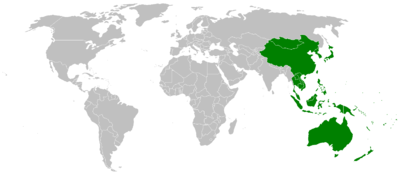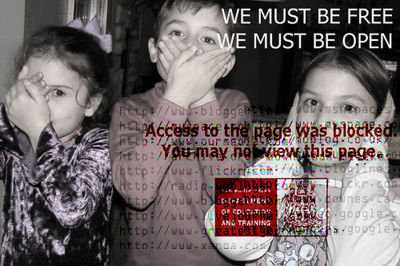Approach of the course
| Regional Relations in Asia and the Pacific | ||
|---|---|---|
| Introduction to course | Overview | Video signpost | Approach of the course | Digital literacy in the 21st century | e-tivity | |
Insert link to wiki course schedule here | ||
Welcome to AST1000. This course introduces you to regional relations in the Asia-Pacific region, including Australia and New Zealand. It uses the frameworks of the Social Sciences and International Relations to guide you on a self-directed investigation of historical and contemporary regional relations throughout Asia and the Pacific, the different societies that comprise the region, and current affairs in the region. The course ultimately aims to foster more understanding of the region among students of the course, in order to facilitate better international cooperation and cross cultural communication in Asia and the Pacific.
A course based on open educational resources
An important feature of this course is that it uses Open Educational Resources as the content basis for your studies. Open Educational Resources (OER) are digital materials that are freely available toeducators, students and self/lifelong learners. OER are increasingly being integrated in open and distance education as they are not subjected to the same copyright constraints as other materials. Therefore, they are more accessible and freely available to most students. There are a number of ways to search for OER and the first e-learning activity (e-tivity) for this course will introduce you to OER and where to look for course content online.
A pedagogy of discovery
This brings us to another important feature of this course which is the course pedagogy. In AST1000, we use the „pedagogy of discovery‟ (including self-discovery) to engender a free-range learning pedagogy. This pedagogy incorporates self-directed content gathering and analysis rather than content that is pre-selected by the examiner. This approach is deliberate in order to allow you to seek out information and areas of study of personal and direct interest or relevance to your own interests or career path. For example - perhaps you want to visit Japan or you plan to teach English there after completing your university studies. The pedagogy of discovery used in this course will allow you to focus your studies on Japan so you can enhance your knowledge and understanding of Japanese history, society, culture and foreign relations. The objectives for each Module, which are linked to and feed directly into the overall course objectives, will guide you as to what types of content you should be exploring each week. You will be required to locate appropriate educational sources online and then read them to derive course content relevant to that particular week‟s learning objectives. Therefore, the pedagogy of the course involves active bottom-up learning within an explicit top-down learning framework/scaffolding. Ultimately however, you will be the one who decides which Open Educational Resources you will focus on in order to meet the objectives set for any given Module.
The pedagogy of discovery has been devised with the Beetham et. al (2009) Learning Literacies in a Digital Age (LLiDA) “Framework of Frameworks” as a cornerstone of the pedagogy. The LLiDA framework is represented in the table below. The Framework demonstrates the component competences you will develop throughout your studies in AST1000, all of which are important skills required in the Digital Age. These competences include metacognition, academic practices and information literacy, communication and collaboration skills, media, ICT, digital and computer literacy, greater participation and engagement with citizenship, and finally, employability.
<insert table: Learning Literacies in a Digital Age (LLiDA) “Framework of Frameworks” need source file>
Guidance and support
While this all could seem a little daunting for some, please remember you will not be alone on your information seeking journey. You will have clear guidance through e-tivities (electronic/online activities) as to what types of information you are looking for each week. On the Regional Relations Database you will be able to share your findings with your fellow students and the course e-moderator. This database is for all students to contribute web-links they have found to be useful and informative.
Students can categorise the links according to the Topic and Country/Region the web-link is relevant to. You will need to write a brief note about the source as well. There is an example modelled on the Regional Relations Database. This database will be an interactive exercise to enable ideas sharing among all students. It will also be a useful source for web resources as you progress through the course, and beyond the course. Be sure to download a copy of the database at the end of the semester for future use.

